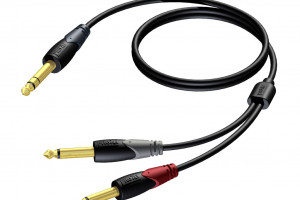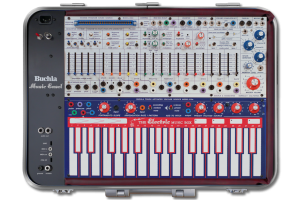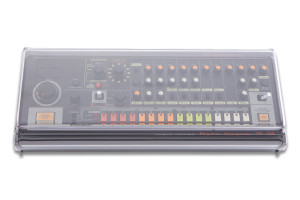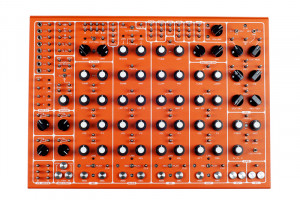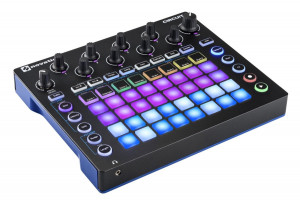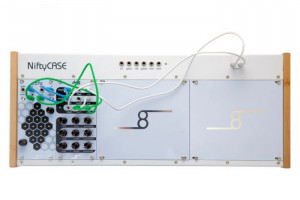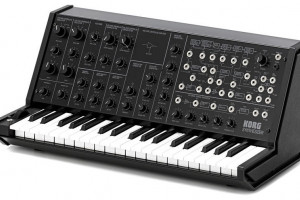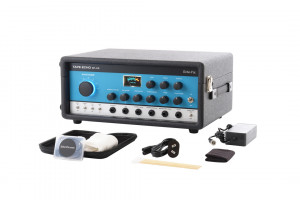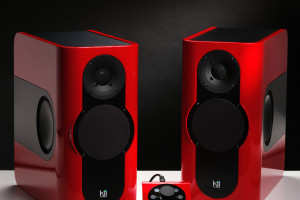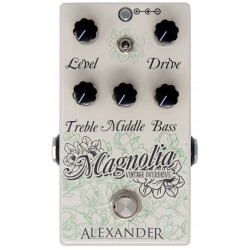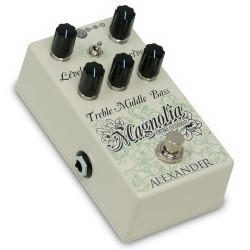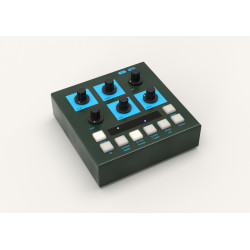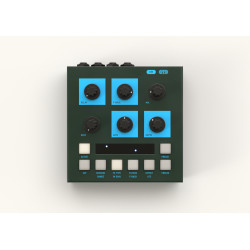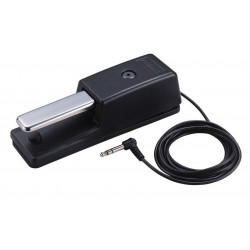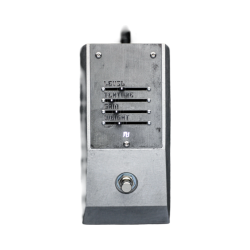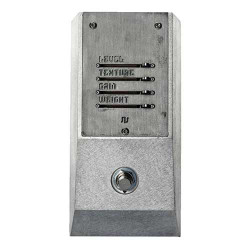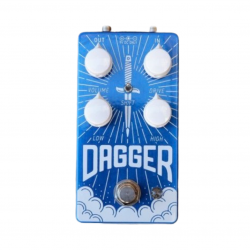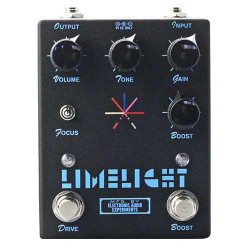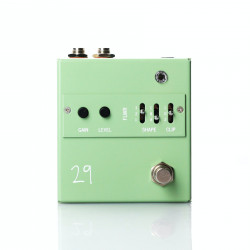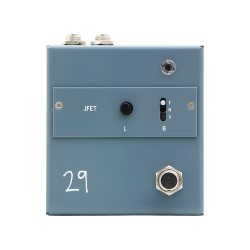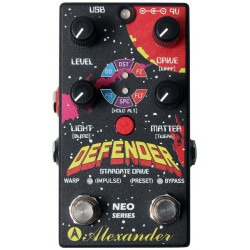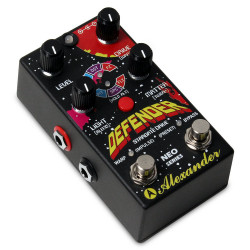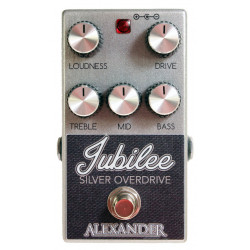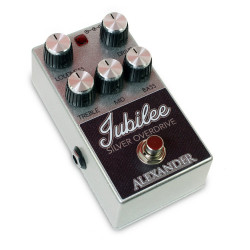- Stock: Pre-Order
- Model: EAE-HALBERD-V2
More from this brand
The Electronic Audio Experiments Halberd is a discrete transistor overdrive circuit designed for the greatest possible dynamic range and note clarity. It fills a special niche our family of drive pedals—a medium-gain device with the harmonic fullness and grind of a much higher-gain pedal, one that stands apart from both the brazen buzz of op amp distortion and the smooth breakup of JFET amp emulations alike.
The Halberd’s character comes from over a dozen transistors working in harmony. It is familiar but unique, sitting somewhere between blown-up tweed and an overloaded console. Rather than resigning itself to transparency, it imparts its character in a collaborative fashion, responding in unique ways to different instruments and amplifiers but not without leaving its distinct fingerprints. And of course, it is equally at home on guitar, bass, and synthesizer.
Controls
Pre: This sets the overall signal gain. Lower settings impart light compression, then increasing amounts of clipping up to a fuzzy overdrive, depending on the Voice and Depth settings.
Depth: This is an adjustable low frequency shelving filter at the input, and is very interactive with the setting of the Pre control. It can be thought of as a second gain control affecting low frequencies only.
Tone: This is an adjustable high shelf cut at the output, helpful for taming harsher frequencies especially at high gain settings.
Post: This sets the overall output level, and is buffered for full transparency at all signal levels.
Voice: 3 position switch to set the overall drive character
Clang (up): increases gain in the upper midrange, for an aggressive sound and a sharp attack
Standard (middle): moderate gain with a gentle mid push; identical to Halberd V1
Deep (down): a full range gain boost with woolly saturation and a fuzzy note attack
Changelog
Version 2 (Released in August 2021)
New mechanical form factor; size reduced from BB-type enclosure to 125B-type enclosure.
NOS germanium transistor no longer used. Supporting circuitry updated to preserve tonal characteristics.
Current draw reduced to 50mA when engaged (previously ∼180mA in V1)
Bypass switching converted to fully electronic CMOS switch
Added Voice toggle.
Added PSU input over-voltage protection.
Low control renamed to Depth; High control renamed to Tone.
-285x169.png)
